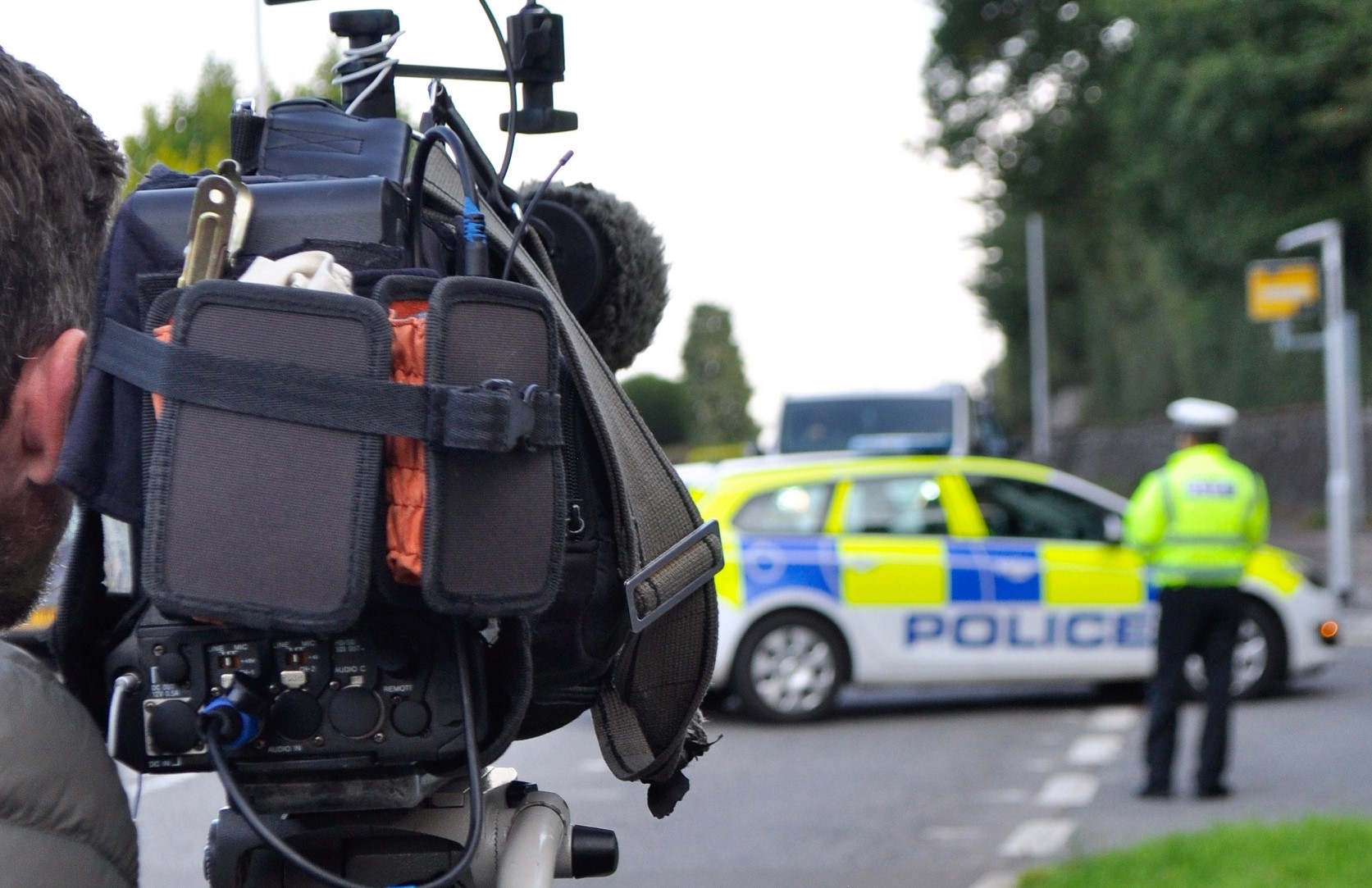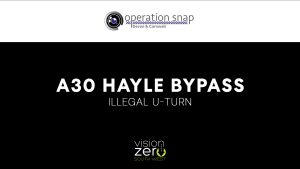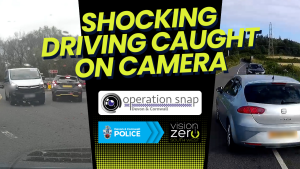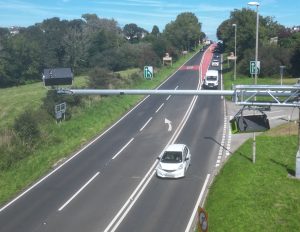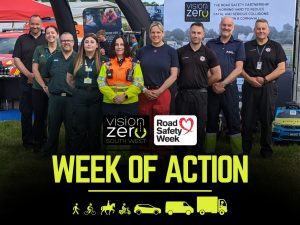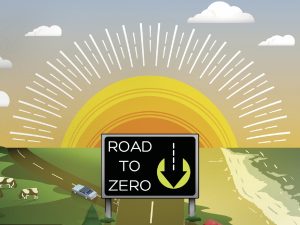“The speed camera network in Devon and Cornwall is working and catching speeding drivers every day.”
That’s the message from the Vision Zero South West road safety partnership after it emerged that some areas of the country have no working fixed speed cameras.
The revelation came as part of the BBC’s Panorama show entitled “Britain’s Killer Roads?” which was broadcast on Monday (January 17).
The programme suggested a reduction in working speed cameras across the UK may have contributed to last year’s increase in fatality rates.
However, Supt Adrian Leisk, strategic lead for roads policing in Devon and Cornwall, says motorists can be assured that speed cameras across the two counties are very much operational – and there are plans to add even more in the near future.
Supt Leisk, who also chairs the Vision Zero South West enforcement sub-group, said: “Across Devon and Cornwall we operate more than 80 active speed cameras which includes a mixture or traditional cameras and average speed detection systems.
“On top of this, we also have 12 dedicated Speed Detection Officers (SDOs) who can operate at mobile locations throughout the region, as well as an army of Community Speed Watch volunteers who work tirelessly to keep their communities safe.
“We know speed cameras work to reduce speeding and that speed is a contributory factor in many, many collisions. Travelling too fast not only gives drivers less time to react, it also increases the likelihood of injury in the event of a collision.
“I want to reassure the vast majority of safe and considerate drivers in Devon and Cornwall that our speed cameras, mobile and static, are very much working and detecting speeding motorists. This not only enables us to prosecute those driving at dangerously high speeds but importantly enables us to refer the vast majority into driver education training as an alternative to prosecution which we know changes behaviour and reduces the risk of an offender subsequently having a crash which is at the heart of our approach to monitoring and enforcement of high-risk driving behaviour.”
While Panorama revealed that fatality rates nationally had risen by 5%, in Devon and Cornwall the number of fatalities dropped from 48 in 2019 to 44 in 2020 (the most recent figures available).
A Freedom of Information request by BBC Panorama, answered by 26 out of 44 forces, revealed that almost half of their fixed speed cameras are not working.
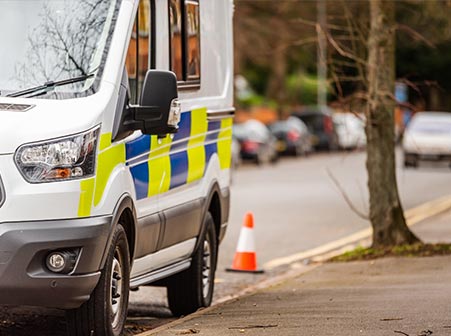
One force reported having no fixed or mobile cameras, relying solely on handheld cameras, while other forces said they have no fixed speed cameras working at all.
Supt Leisk added that the number of dedicated police constables specialising in roads policing has more than doubled – from 25 to 52 – as a result of the national police officer Uplift recruitment programme.
He said: “There are now also 14 officers allocated to two ‘No Excuse’ teams actively using intelligence to identify and target the most dangerous drivers. 144 Armed Policing officers have Roads Policing as a secondary specialism, providing further resilience.
“Reducing road deaths and serious injury is a key priority for Devon & Cornwall Police. The increased numbers of officers and police staff mean that we can be more proactive in dealing with dangerous drivers, but also that we can respond quicker to reports from members of the public and work more closely with our partners to target issues such as speeding and careless and inconsiderate driving.
“Resources proactively target known locations across Devon and Cornwall where poor driving standards play a contributory factor in fatal or serious injury collisions. Additionally, 270 dashcams were provided to members of the public to enable greater public reporting of road traffic offences.
“I would also encourage anyone who witnesses poor driving episodes to use our Operation Snap online portal to submit video and photographic evidence to allow officers to deal with any offences identified, at dc.police.uk/opsnap.
“Death should never be an inevitable result of travelling on the road network in Devon and Cornwall. We are dedicated to making progress towards reducing the number of people killed or seriously injured on our roads, and this investment will help our Force achieve the strategic target of reducing road deaths by 50 per cent by 2030.”
Alison Hernandez, Police and Crime Commissioner for Devon, Cornwall and the Isles of Scilly, is the national APCC lead for roads policing and safety, as well as the chairman of the Vision Zero South West road safety partnership.
The Commissioner has made road safety one of just four main priorities in her new Police and Crime Plan.
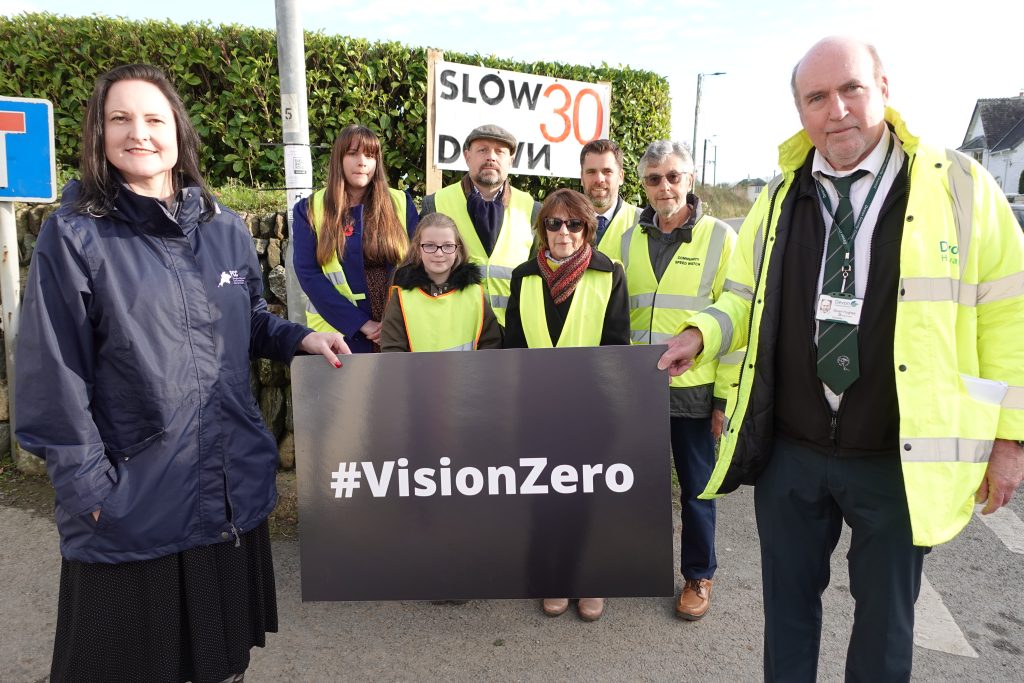
She said: “It’s tragic that fatality rates have increased nationally and we must always remember that every one of these is a human being with loved ones and people who cared about them. Every death on our roads is one too many.
“While we know that police enforcement has a strong effect on driver behaviour, road safety is not and must not become the sole responsibility of police officers – it is the responsibility of everyone who uses the roads.
“In Devon and Cornwall we use a joined-up and innovative approach through the creation of the Vision Zero South West road safety partnership which includes all the emergency services, councils, highways authorities, NHS Trusts and many, many more.
“We use data to target problem areas, concentrate on our vulnerable road user groups and work with communities to identify areas of concern. Recently we spent £153,000 to fund 34 community-led road safety projects, donated 170 dashcams to users of high-risk routes and even used data to pre-empt the risk of collisions at a local event, allowing us to provide enforcement and education to avoid any potential incidents.
“Our vision is to cut all fatal and serious road collisions in Devon and Cornwall to zero by 2040 – and as an interim target to reduce all fatal and seriously injury crashes by 50% by 2030. We can only achieve this ambitious target by working closely with agencies, organisations and communities.”
The Department for Transport released its official annual road casualty statistics in October last year which showed that in Devon and Cornwall 44 people were killed and 624 people were seriously injured.
Of those killed or seriously injured on Devon and Cornwall’s roads:
- 270 were car occupants
- 196 were motorcyclists
- 96 were pedestrians
- 78 were cyclists
- 18 were van/light goods vehicle occupants
- 2 were HGV occupants
- 1 was a bus or coach occupant

